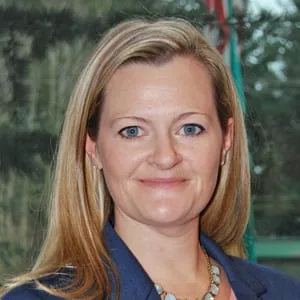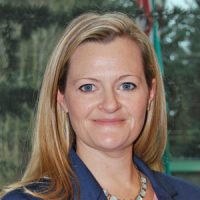
Home » New director of state’s Division of Banks calls banking industry healthy
New director of state’s Division of Banks calls banking industry healthy

February 14, 2017
Roberta Hollinshead may be the first woman in the state’s history to lead the Department of Financial Institutions’ Division of Banks, but she credits her knowledge of the industry—both challenges and opportunities—for setting her apart.

She spent more than 15 years as an examiner with the department, including the rocky period when the banking industry and economy plunged into a recession and many banks merged or shuttered their doors.
Her department oversees an annual budget of $4.2 million and employs 30 people, most of whom are examiners.
The Division of Banks’ goal is to promote a safe and sound financial industry through chartering, examining and supervising state-chartered banks and trust companies.
The agency, which supervises 46 banks and 11 trust companies in the state, is self-funded, which means it collects assessment and fees from the companies it regulates.
“Our mandate is to break even,” Hollinshead said.
Although the banking industry is healthy today, Hollinshead said it continues to see merger activity. As a result, banks continue to grow in size. One of her goals as the new director is to ensure her staff is well equipped to examine larger and more complex financial institutions.
“Also, as the leader of this division, the development of my staff is extremely important,” she said. “I want to foster a … culture that emphasizes continual development. I will work with our examination staff to ensure they have well-defined career paths and are supported as they learn and advance in their careers.”
Despite what many people think—that they’re simply enforcing laws—Hollinshead said most people would be surprised to know the division’s goals are in line with the industry’s goals: to make sure the financial industry is healthy and thriving.
“One thing I learned from my predecessor is you can never fully prepare for some of the (economic) forces. I know enough to know there will be surprises,” she said. “But I’m ready for that. We’re doing our very best to watch for some of these key indicators to make sure that the risk is well monitored and controlled, so hopefully we don’t go through anything like (the recession) again.”
The last bank in Washington state to be granted a certificate of authority was Liberty Bay Bank in Poulsbo in June 2009. While Hollinshead has not seen any parties interested in starting new banks—largely because of how competitive the industry is—she looks forward to chartering new ones as the economy continues to heal.
“It would be an indicator of growth in our state. It would tell people we are open for business in Washington,” she said.
She noted that the Tri-Cities has a healthy climate for banks. “The Tri-Cities fared very well through the economic downturn, and I could see it happening in the Tri-Cities.”
The industry has come a long way since the Great Recession, she said.
When Hollinshead worked as an examiner, she spent a lot of time in the field, visiting with financial institutions around the state. The department regulates a variety of financial service providers, such as banks, credit unions, mortgage brokers, consumer loan companies, payday lenders, and securities brokers and dealers.
She had several years under her belt when the banking world took a dramatic hit.
“The financial crisis of 2008 to 2013 was a very difficult time for our industry. Many banks closed, and many banks merged. And through that, there was often conflict,” she said.
“You have to have really strong communication skills (as an examiner) to work through those conflicts, and at the end of the day, you have to have the same goal—for the industry to thrive. I worked with several different regulator agencies overseeing our banks, and we all have slightly different rules. We give new banks a charter, but we’re also responsible for closing them. And I was on the frontline as an examiner (during the financial crisis). I was the one having conversations with stakeholders and working through issues.”
An early interest in finance field
Hollinshead liked business and finance early on and had an inkling it would be her career path.
“My mom was a financial adviser, and I learned the principles of personal finance at a pretty young age,” said Hollinshead, who added that a banking class at the University of Washington sparked her interest in community banking. “It was then that I learned how community banks fuel the economy and provide credit and financial services—often in the communities who need this access the most.”
She graduated from University of Washington in 2001 with a business finance degree before joining the Department of Financial Institutions as an examiner. She took evening and weekend classes at Seattle University and completed her master’s in business administration while working full time.
She was promoted to her new $118,500-a-year position in December.
“The interview process was rigorous. We had an internal and external industry panel. In addition, I spent my career building relationships with stakeholders, groups, bankers, regulators and trade organizations. I think that really gave me an advantage,” she said, adding that her predecessor, Rick Riccobono—who retired in November 2016—was very supportive of her advancement. “He was a great advocate of me.”
Local News Banking & Investments
KEYWORDS february 2017





